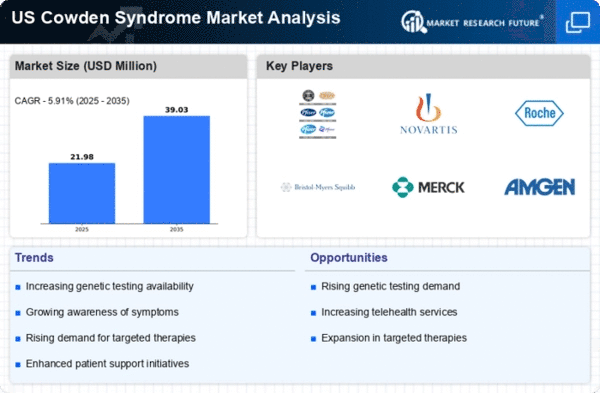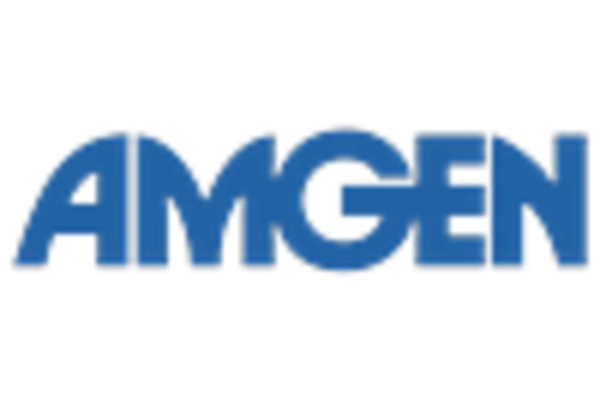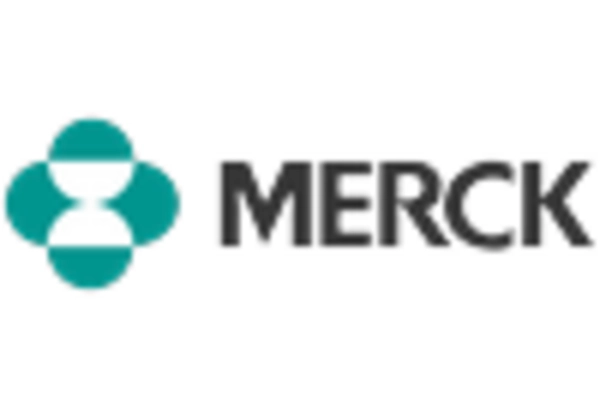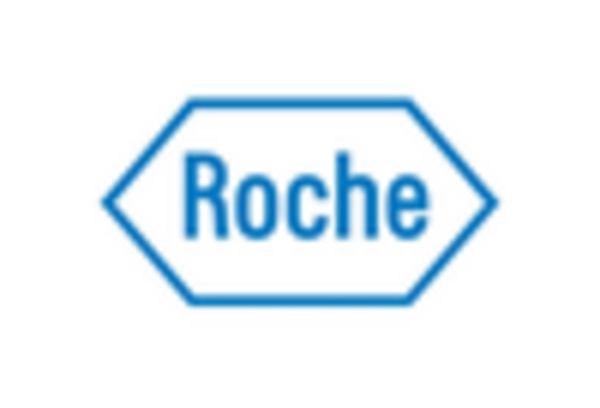Rising Incidence of Cowden Syndrome
The rising incidence of Cowden syndrome in the United States is a significant factor influencing the cowden syndrome market. Recent epidemiological studies suggest that the prevalence of this genetic disorder may be higher than previously estimated, with some reports indicating an incidence rate of approximately 1 in 200,000 individuals. This increase in diagnosed cases is likely to drive demand for healthcare services, including genetic counseling, testing, and treatment options. As awareness grows and more individuals are diagnosed, the cowden syndrome market is expected to expand, providing opportunities for healthcare providers and pharmaceutical companies to meet the needs of this patient population.
Growing Awareness of Cowden Syndrome
The increasing awareness of Cowden syndrome among healthcare professionals and the general public is a crucial driver for the cowden syndrome market. As more individuals become informed about the symptoms and risks associated with this genetic disorder, there is a higher likelihood of early diagnosis and intervention. This heightened awareness is reflected in the rising number of genetic counseling sessions and screenings, which have reportedly increased by approximately 30% over the past few years. Consequently, this trend is expected to bolster the cowden syndrome market, as more patients seek diagnostic services and treatment options tailored to their specific needs.
Regulatory Support for Genetic Testing
Regulatory support for genetic testing is emerging as a vital driver for the cowden syndrome market. The U.S. Food and Drug Administration (FDA) has been actively working to streamline the approval process for genetic tests, which facilitates quicker access to diagnostic tools for patients. This regulatory environment encourages innovation and investment in genetic testing technologies, making them more accessible to healthcare providers and patients alike. As a result, the cowden syndrome market is likely to benefit from an increase in the adoption of genetic tests, leading to earlier diagnosis and improved management of the condition.
Expansion of Genetic Research Initiatives
The expansion of genetic research initiatives in the United States plays a pivotal role in shaping the cowden syndrome market. With significant funding allocated to research projects aimed at understanding the genetic underpinnings of Cowden syndrome, new insights are emerging that could lead to innovative treatment strategies. For instance, the National Institutes of Health (NIH) has invested millions in research focused on PTEN gene mutations, which are linked to Cowden syndrome. This influx of research funding is likely to enhance the development of targeted therapies and diagnostic tools, thereby driving growth in the cowden syndrome market.
Increased Availability of Targeted Therapies
The cowden syndrome market is witnessing a notable increase in the availability of targeted therapies. This trend is expected to enhance treatment outcomes for patients. Recent advancements in pharmacogenomics have led to the development of therapies that specifically address the molecular mechanisms underlying Cowden syndrome. As a result, pharmaceutical companies are investing heavily in clinical trials to evaluate the efficacy of these targeted treatments. The market for these therapies is projected to grow significantly, with estimates suggesting a compound annual growth rate (CAGR) of around 15% over the next five years, reflecting the potential for improved patient care in the cowden syndrome market.
















